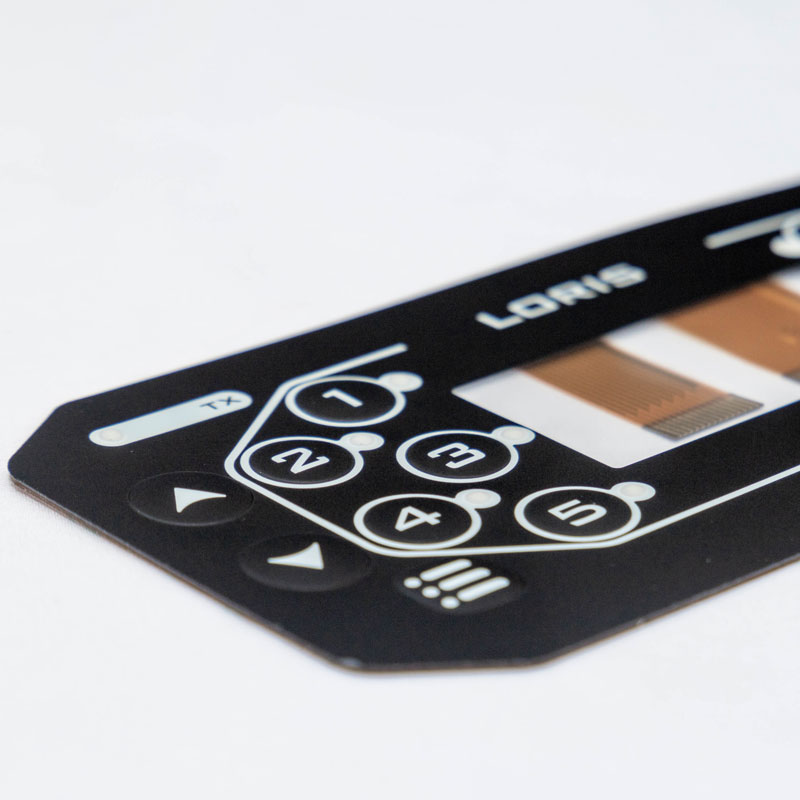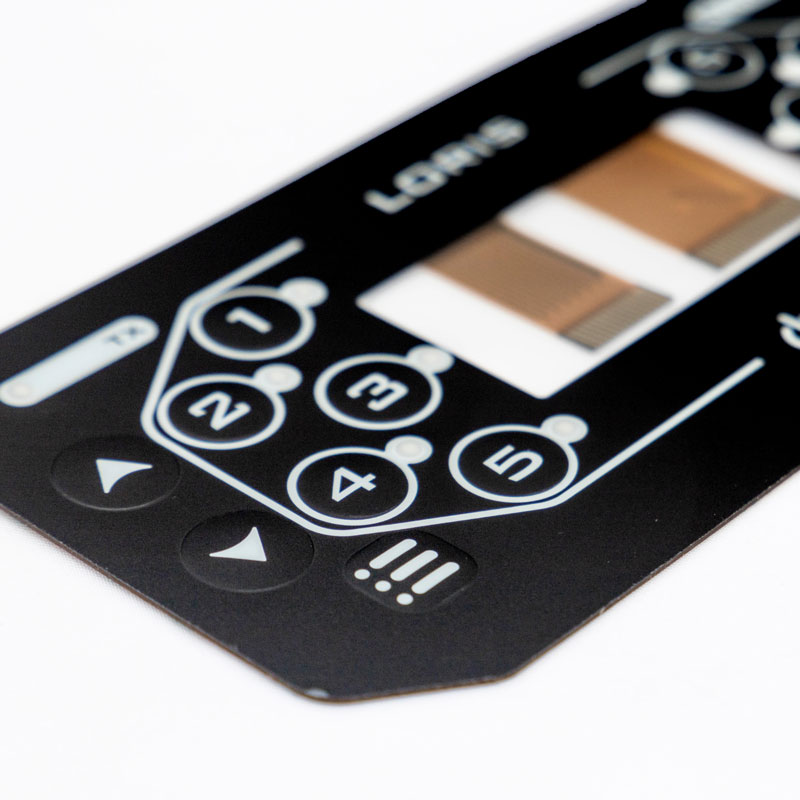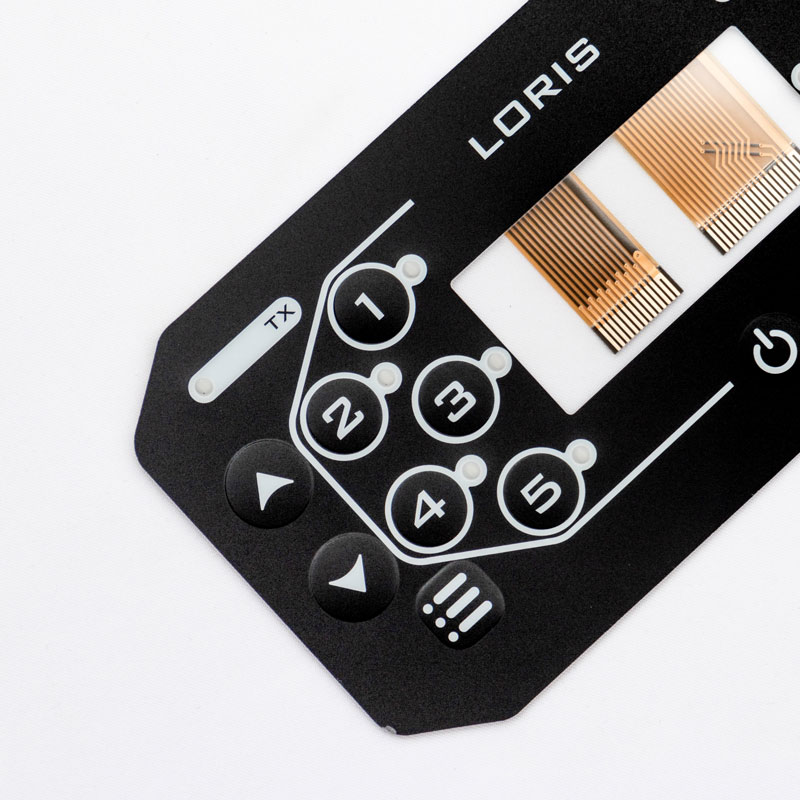As technology advances, the use of LED membrane switches in industrial machinery has become increasingly popular. This article will explore the reasons why LED membrane switches shine in industrial machinery.



Definition of LED Membrane Switches
Types of LED Membrane Switches
Durability
Customization
Sensitivity
Low Power Consumption
Easy to Clean
Improved Visibility
Enhanced Safety
Improved Efficiency
Cost-effective
Operating Environment
Application Requirements
Aesthetic Requirements
Compatibility with Other Components
Proper Cleaning Techniques
Inspection and Replacement
Maintenance Schedule
LED membrane switches have become an integral part of industrial machinery due to their durability, customization options, sensitivity, low power consumption, and ease of cleaning. They provide improved visibility, enhanced safety, improved efficiency, and are cost-effective. When choosing LED membrane switches, it is important to consider factors such as operating environment, application requirements, aesthetic requirements, and compatibility with other components. Proper maintenance is also crucial to ensure optimal performance and longevity.
What are LED membrane switches?
What are the advantages of using LED membrane switches in industrial machinery?
How do LED membrane switches improve efficiency in industrial machinery?
What factors should be considered when choosing LED membrane switches for industrial machinery?
How can LED membrane switches be properly maintained in industrial machinery?
Before delving into why LED membrane switches shine in industrial machinery, it's important to understand what they are.
LED membrane switches are electrical switches that use a thin, flexible membrane to operate the switch mechanism. They consist of several layers, including a graphic overlay layer, a circuit layer, and a backer layer. LED membrane switches are typically used as a control panel for industrial machinery, where they provide tactile feedback and indicate the status of the machinery.
There are different types of LED membrane switches, each with their own advantages and disadvantages. Some common types include:
Non-tactile membrane switches: These switches do not provide tactile feedback when pressed, but are usually the most cost-effective option.
Tactile membrane switches: These switches provide a tactile response when pressed, which can improve the user experience and accuracy.
Metal dome membrane switches: These switches use a metal dome underneath the membrane to provide tactile feedback.
Polydome membrane switches: These switches use a polydome underneath the membrane to provide tactile feedback.
LED membrane switches offer several advantages over other types of switches, making them an ideal choice for industrial machinery.
Durability
LED membrane switches are designed to be durable and withstand harsh environments. They are typically made from materials such as polyester or polycarbonate, which are resistant to moisture, chemicals, and temperature fluctuations.
Customization
LED membrane switches can be customized to meet specific requirements, including the size, shape, and color of the graphic overlay. This makes it easy to integrate the switch into the overall design of the machinery.
Sensitivity
LED membrane switches are sensitive to touch, making them easy to operate. They also provide tactile feedback, which can improve accuracy and reduce user fatigue.
Low Power Consumption
LED membrane switches require very little power to operate, which can help reduce overall power consumption and save on energy costs.
Easy to Clean
LED membrane switches are easy to clean and maintain, thanks to their smooth, non-porous surface. They can be wiped down with a damp cloth or cleaned with a mild detergent.
LED membrane switches play a crucial role in industrial machinery, providing several important benefits.
Improved Visibility
LED membrane switches are designed to be highly visible, with bright, backlit graphics that are easy to read even in low-light conditions. This can improve overall safety and reduce the risk of errors.
Enhanced Safety
LED membrane switches can be designed with safety features such as emergency stop buttons or lockout switches, which can help prevent accidents and injuries.
Improved Efficiency
LED membrane switches can improve efficiency by streamlining the control process and reducing the time required to operate machinery. This can help increase productivity and reduce downtime.
Cost-effective
LED membrane switches are often more cost-effective than other types of switches, thanks to their durability and low power consumption. They can also be easily customized, reducing the need for expensive tooling and setup costs.
When choosing LED membrane switches for industrial machinery, it's important to consider several factors to ensure optimal performance.
Operating Environment
The operating environment of the machinery should be taken into account when selecting LED membrane switches. Factors such as temperature, humidity, and exposure to chemicals can affect the durability and performance of the switch.
Application Requirements
The specific requirements of the application should also be considered, including the number of switches required, the size and shape of the switch, and the type of tactile feedback needed.
Aesthetic Requirements
The aesthetic requirements of the machinery should also be taken into consideration, including the color and design of the graphic overlay and the overall appearance of the switch.
Compatibility with Other Components
The compatibility of the LED membrane switch with other components of the machinery, such as the control system and other switches, should also be considered to ensure proper operation.
Proper maintenance is important to ensure the longevity and optimal performance of LED membrane switches in industrial machinery.
Proper Cleaning Techniques
LED membrane switches should be cleaned regularly using a soft, non-abrasive cloth and a mild detergent. Harsh chemicals or abrasive materials should be avoided, as they can damage the surface of the switch.
Inspection and Replacement
LED membrane switches should be inspected regularly for signs of wear or damage, such as cracks or fading of the graphic overlay. Any damaged switches should be replaced promptly to ensure proper operation.
Maintenance Schedule
A regular maintenance schedule should be established to ensure that LED membrane switches are inspected and cleaned on a regular basis. This can help prevent problems before they occur and ensure that the machinery operates smoothly.
LED membrane switches offer several advantages over other types of switches, making them an ideal choice for industrial machinery. They provide improved visibility, enhanced safety, improved efficiency, and are cost-effective. When choosing LED membrane switches for industrial machinery, it's important to consider factors such as the operating environment, application requirements, aesthetic requirements, and compatibility with other components. Proper maintenance is also crucial to ensure optimal performance and longevity.
What are LED membrane switches?
LED membrane switches are electrical switches that use a thin, flexible membrane to operate the switch mechanism. They are typically used as a control panel for industrial machinery.
What are the advantages of using LED membrane switches in industrial machinery?
LED membrane switches offer several advantages, including durability, customization, sensitivity, low power consumption, and ease of cleaning. They also provide improved visibility, enhanced safety, improved efficiency, and are cost-effective.
How do LED membrane switches improve efficiency in industrial machinery?
LED membrane switches can improve efficiency by streamlining the control process and reducing the time required to operate machinery. This can help increase productivity and reduce downtime.
What factors should be considered when choosing LED membrane switches for industrial machinery?
Factors to consider include the operating environment, application requirements, aesthetic requirements, and compatibility with other components.
How can LED membrane switches be properly maintained in industrial machinery?
LED membrane switches should be cleaned regularly using a soft, non-abrasive cloth and a mild detergent. They should also be inspected regularly for signs of wear or damage and replaced as necessary. A regular maintenance schedule should be established to ensure optimal performance.
